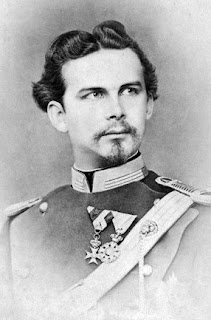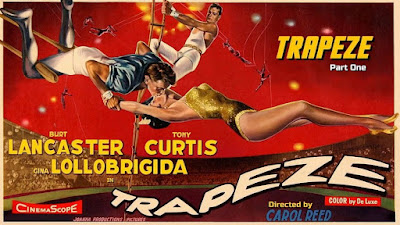 |
| Helmut Berger as King Ludwig II |
"The greatest gift you can give to your people is to enrich their souls." -- King Ludwig II
King Ludwig II of Bavaria (Helmut Berger of The Bloodstained Butterfly) has much more interest in art, culture, and architecture than he does in matters of state. Supposedly in love with his cousin, the Empress Elisabeth of Austria (Romy Schneider), he gets engaged to Elisabeth's sister, Sophie (Sonia Petrovna). Elisabeth suspects where her cousin's true interests lie, but feels that Ludwig will grow out of these feelings with Sophie's help; the two never get married, however. Ludwig is Catholic and tells his priest that he will subdue any "unnatural" feelings he has, right after which he is playing footsie with his footman, Richard Horning (Marc Porel). Whether it's the King's erotic tendencies or the alleged "degeneration" of his mind that are the problem, the members of the Bavarian government are determined to get "Mad" King Ludwig out of his castle. This leads to two deaths that are still a mystery today.
 |
| The real King Ludwig |
There is no doubt that Ludwig was homosexual, but whether he was "tormented" or not, despite his Catholicism, is debatable. I believe his alleged romantic love for Elisabeth -- which is like that of a child -- was invented for this film, as Visconti wanted his hero to be at least perceived as bisexual, be it true or not, for the director's own reasons. (As for Helmut Berger, he was married to both a man and a woman so you can come to your own conclusions. He was Visconti's companion for many years.)
 |
| The king and squire at rest |
Ludwig was filmed on location and the settings are simply magnificent. The movie doesn't always hit the mark emotionally, but it is literate, opulent, romantic, and generally tasteful. King Ludwig was criticized for building numerous beautiful castles, most of which he never lived in, but today they are great tourist attractions and have certainly enriched the Bavarian coffers.
Verdict: My next vacation will be in Bavaria. ***1/4.












































